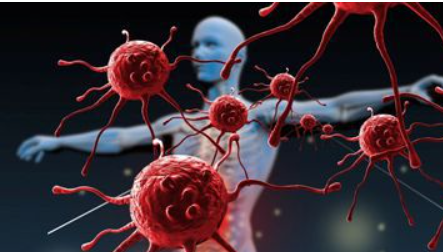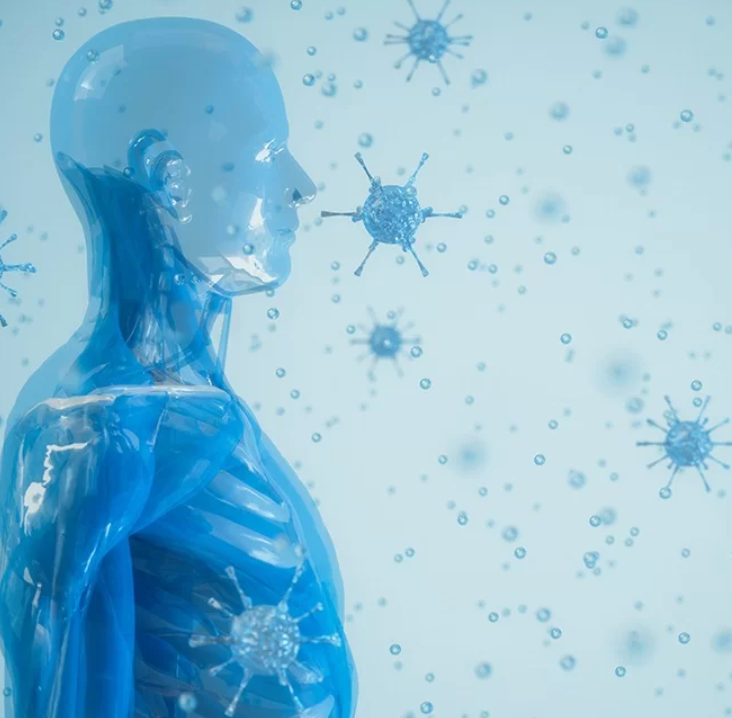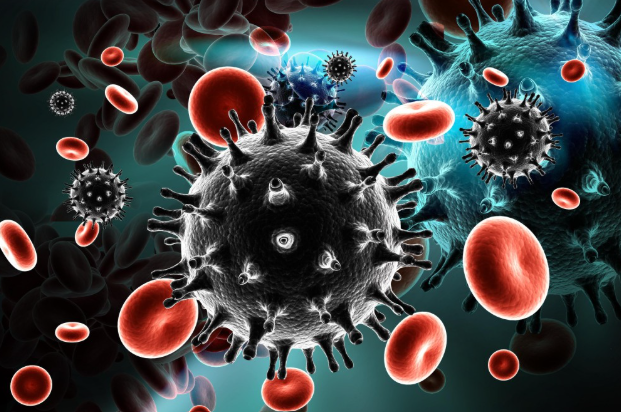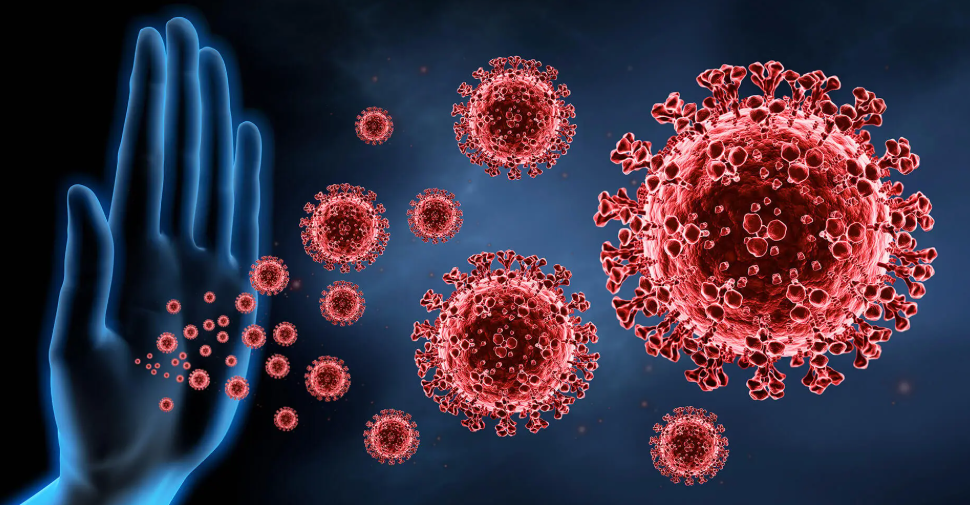Immunodeficiency is a condition where the immune system doesn’t work correctly, leaving a person vulnerable to frequent, severe, or unusual infections. It can be primary, meaning it’s genetic and present from birth, or secondary, acquired later in life due to factors like medications, chronic diseases, or infections like HIV/AIDS. Symptoms include getting sick more often, infections lasting longer, and an increased risk of autoimmune disorders and cancers.

The Causes of immunodeficiency:
1. Primary Immunodeficiency (Genetic/Congenital)
These are usually inherited disorders that affect specific components of the immune system. Examples include:
- B-cell (antibody) deficiencies:
- Common Variable Immunodeficiency (CVID)
- X-linked agammaglobulinemia (Bruton’s disease)
→ Leads to recurrent bacterial infections.
- T-cell deficiencies:
- DiGeorge syndrome (22q11 deletion)
- Severe Combined Immunodeficiency (SCID)
→ Leads to viral, fungal, and opportunistic infections.
- Combined B-cell and T-cell deficiencies:
- Severe Combined Immunodeficiency (SCID)
→ Both humoral and cellular immunity are affected.
- Severe Combined Immunodeficiency (SCID)
- Phagocytic defects:
- Chronic granulomatous disease
→ Impaired ability to kill bacteria and fungi.
- Chronic granulomatous disease
- Complement deficiencies:
- C3 deficiency, terminal complement component deficiencies (C5-C9)
→ Increased susceptibility to encapsulated bacteria and Neisseria infections.
- C3 deficiency, terminal complement component deficiencies (C5-C9)
2. Secondary Immunodeficiency (Acquired)
These occur due to external factors that weaken the immune system. Common causes include:
- Infections:
- HIV/AIDS → destroys CD4+ T cells.
- Malnutrition:
- Protein-calorie malnutrition → reduces immune cell production.
- Micronutrient deficiencies (zinc, vitamin A, selenium) → impair immunity.
- Medical treatments:
- Chemotherapy or radiation therapy → suppress bone marrow.
- Immunosuppressive drugs (e.g., corticosteroids, transplant medications).
- Chronic diseases:
- Diabetes mellitus → impaired neutrophil function.
- Chronic kidney disease, liver disease → reduce immune efficiency.
- Age-related immunodeficiency:
- Infants (immature immune system)
- Elderly (immunosenescence)
- Splenectomy:
- Increases susceptibility to encapsulated bacteria.
The symptoms of Immunodeficiency:
1. General Symptoms
These are common to most immunodeficiencies:
- Frequent or recurrent infections (bacterial, viral, fungal, or opportunistic)
- Infections that are unusually severe, persistent, or difficult to treat
- Poor response to standard treatments (e.g., antibiotics)
- Delayed recovery from illness
- Chronic fatigue or malaise
2. Symptoms by Immune Component Affected
| Immune Component | Typical Symptoms |
|---|---|
| B-cell / antibody deficiency | Recurrent bacterial infections (sinusitis, ear infections, pneumonia), poor response to vaccines, chronic diarrhea |
| T-cell deficiency | Severe viral infections (herpes, CMV), fungal infections (Candida, Pneumocystis), failure to thrive in infants, chronic diarrhea |
| Combined B & T deficiency | Recurrent infections of all types (bacterial, viral, fungal), failure to thrive, persistent oral thrush, skin rashes |
| Phagocyte defects | Recurrent skin abscesses, lung infections, slow-healing wounds, granuloma formation |
| Complement deficiency | Recurrent infections with encapsulated bacteria (Streptococcus pneumoniae, Neisseria meningitidis), autoimmune disorders |
3. Secondary Immunodeficiency-Specific Clues
- HIV/AIDS: Chronic diarrhea, weight loss, opportunistic infections, persistent fever
- Malnutrition: Fatigue, stunted growth (children), frequent infections
- Medication-induced: Infections during or after immunosuppressive therapy
- Age-related: Increased infections in elderly or infants, slower wound healing

Treatment of immunodeficiency:
1. Treating and Preventing Infections
- Prompt treatment of infections with antibiotics, antivirals, or antifungals depending on the pathogen.
- Prophylactic (preventive) therapy in severe cases:
- Antibiotics (e.g., TMP-SMX for Pneumocystis prophylaxis)
- Antifungals or antivirals in immunocompromised patients
- Vaccinations:
- Live vaccines are generally avoided in severe T-cell deficiencies.
- Inactivated vaccines are used as appropriate to boost immunity.
2. Immune System Support
- Immunoglobulin replacement therapy (IVIG or subcutaneous IG)
- For B-cell or combined immunodeficiencies to provide passive antibodies.
- Hematopoietic stem cell transplantation (HSCT)
- Curative for severe combined immunodeficiency (SCID) or certain primary immunodeficiencies.
- Cytokine therapy
- Examples: GM-CSF or G-CSF for phagocyte disorders.
3. Managing the Underlying Cause (Secondary Immunodeficiency)
- HIV/AIDS: Antiretroviral therapy (ART) to restore immune function.
- Malnutrition: Nutritional supplementation, protein, and micronutrients.
- Medication-induced: Adjusting or discontinuing immunosuppressive drugs if possible.
- Chronic diseases: Optimal management of diabetes, kidney disease, or liver disease to improve immune function.
4. Supportive Measures
- Good hygiene to reduce infection risk.
- Prompt medical attention for any new infection.
- Avoiding exposure to sick contacts, contaminated food, or unpasteurized products.

